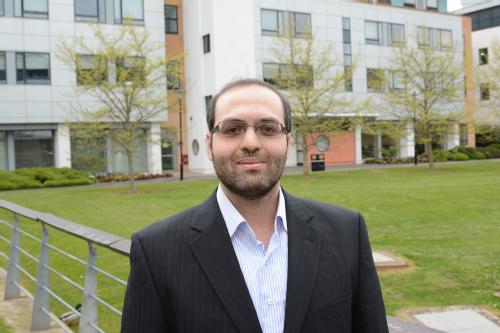Data Science News
IT firms hope to benefit from big data research with Warwick University partnership

As reported in 'Computer Business Review' and 'Computer World' (14/5/2014)
A new partnership between the University of Warwick and Bull Information Systems has been announced supporting IT developments in Big Data. The new partnership will allow leading research scientists from the university to work alongside business consultants and developers from one of Europe’s foremost suppliers of computing hardware, software and consulting services.
“So much has been discussed about the possibilities of big data yet few businesses have the advanced expertise needed to go beyond this,” said Andrew Carr, CEO of Bull UK and Ireland.
“They may already have a vision but be unsure about how to get there - or they may not even be aware of what they could achieve with the data they hold and need help to identify the opportunities.
“By taking this challenge beyond the mainstream business environment and engaging the best brains possible on the subject, we can help organisations start to realise big data implementations by injecting a new dynamism into high performance project development that will enable them to be the first to market with their initiatives.”
Professor Stephen Jarvis, who is leading the partnership at Warwick, stated that "Bull is committed to open standards and 'open ICT solutions' which allows users, including ourselves, to gain real insight and expertise in developing data analytics infrastructures as well as developing skills in using that infrastructure.”
“Organisations are bombarded by data in diverse forms from social media to connected sensors, but few know how to combine structured and unstructured forms and convert data to information to give real value. We aim to help them overcome these barriers and to develop great commercial applications that will significantly improve the experience of their customers.”
Ebrahim Ardeshir-Larijani completes his PhD

Ebrahim Ardeshir-Larijani has passed his PhD viva and his thesis has been approved, subject to minor corrections. His thesis is titled "Automated Equivalence Checking of Quantum Information Systems". Quantum information processing is an emerging technology and verification of quantum protocols is important for the design and development of quantum communication and cryptographic systems. Ebrahim's thesis presents languages (sequential and concurrent) for describing quantum systems and techniques for checking equivalence. The work has resulted in two joint papers (with Simon Gay and Rajagopal Nagarajan) in good conferences, TACAS 2013 and TACAS 2014.
Ebrahim was supervised by Dr. Ranko Lazic and Prof. Rajagopal Nagarajan, the external examiner was Dr. Ross Duncan (Strathclyde) and his internal examiner was Dr. Jane Sinclair.
Opening: Professor of Computer Science
Candidates are required to have a PhD in Computer Science or related discipline, should be able to demonstrate excellent research in computer science, should be capable of research leadership (to demonstrate an ability to secure funded research grants and co-supervising MSc and PhD students in Computer Science), and should have excellent teaching skills. Candidates should be able to demonstrate a commitment to excellence in research and teaching, and the ambition to play a leading role in the Department of Computer Science. Special considerations will be given to candidates with interdisciplinary interests and industrial research experience.
Contact Information for the Department of Computer Science: Professor Artur Czumaj (Head of Computer Science) at A.Czumaj@warwick.ac.uk.
To apply, please follow the instructions available on the official University web-page.
Please quote job vacancy reference number 71077-044.
Closing date for applications: 22 May 2014.

